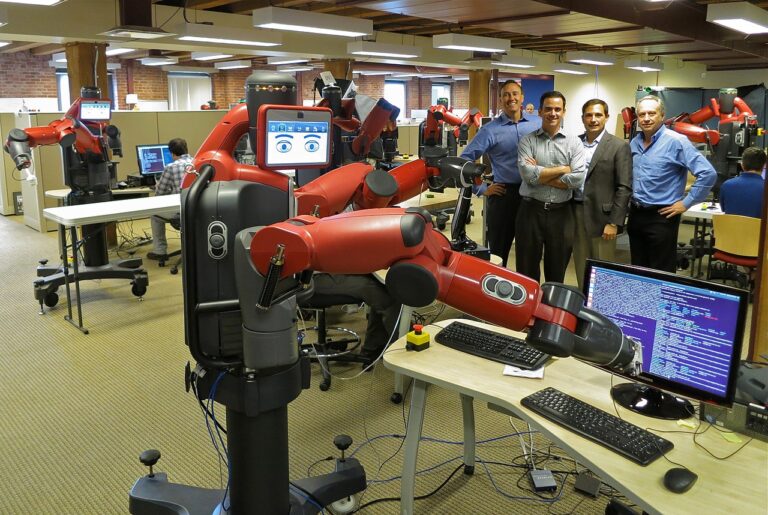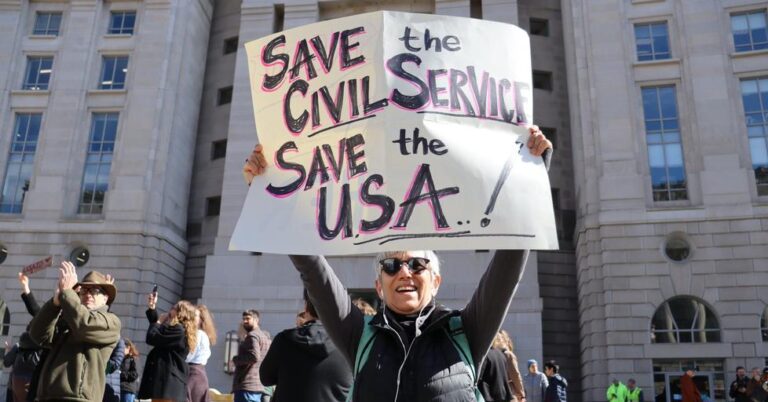Jon Weinberg is a student at Harvard Law School.
Governors in Illinois and Ohio have downplayed right-to-work laws in their respective states. Illinois Governor Bruce Rauner has quietly ceased pursing right-to-work zone legislation as part of his agenda, according to WSIL-TV. Meanwhile, while campaigning for the 2016 Republican presidential nomination Ohio Governor John Kasich said he doesn’t believe Ohio needs a right-to-work law, the Cincinnati Enquirer reports. CNBC published an analysis of right-to-work legislation and campaigns in various states, noting the right-to-work movement believes it has reached a national “tipping point.”
The battle over representation at the Volkswagen plant in Chattanooga, Tennessee, covered extensively by OnLabor, continues. The Associated Press reports that the American Council of Employees (ACE), a rival group to the United Auto Workers (UAW) attempting to organize at the plant, refuses to disclose its funding sources and is represented by an attorney who specializes in “union avoidance.” The AP also reports that the ACE claims it has no ties to a previous group that opposed the UAW, noting that the previous group “opposed any sort of organized labor, while ACE backs Volkswagen’s desire to create a German-style works council at the plant.”
Writing for The Christian Science Monitor, former U.S. Secretary of Labor Robert Reich calls for the strengthening of unions. He argues that the decline of the American middle class is tied to declines in unionization, and believes the tide can be turned by making it easier to unionize, increasing punishment for violations of labor law, and pre-empting state right-to-work laws. His conclusion is that “if we want average Americans to get a fair share of the gains from economic growth, they need to be able to unionize.”
A former employee of Delta Air Lines sued the company in the U.S. District Court in Minneapolis last week, claiming “he was fired from his job of 26 years for union organizing and public comments about low pay for Delta’s ground workers,” according to the Minneapolis Star Tribune. Christopher “Kip” Hedges, the former employee, is suing under the Railway Labor Act. He had been active in attempting to organize the airline’s ground workers and he alleges he was questioned, warned by management and fired for his activities.
In The Washington Post, Lydia DePillis comments on the role of unions in the debate over Los Angeles’ recent minimum wage hike, covered by OnLabor. DePillis defended the notion that unionized employers should be exempt from the higher minimum wage, noting such exemptions are a common practice “that’s supposed to help union organizing by offering employers the carrot of regulatory relief if they work with organized labor.” She goes on to argue, however, that the perceived need for the exemption is a sign of the weak position of unions, and that since their effectiveness is unproven other union minimum wage movements haven’t pushed for them.
The Wall Street Journal notes that a federal appeals court’s ruling last week halting some of President Obama’s immigration initiatives won’t impact those in the United States on high-skilled worker visas. The court ruling, previously covered by OnLabor, stopped the Obama administration form proceeding with new deferred action and work authorization measures but didn’t impact the initiatives for skilled workers.
Visiting Pittsburgh, U.S. Secretary of Labor Thomas Perez touted the DOL-funded “Made Right Here” program that connects tech developers with workers union to encourage domestic technology production. The Pittsburgh Post-Gazette reports that 200 workers have been trained through the program thus far and 100 placed in the technology sector.






Daily News & Commentary
Start your day with our roundup of the latest labor developments. See all
December 5
Netflix set to acquire Warner Bros., Gen Z men are the most pro-union generation in history, and lawmakers introduce the “No Robot Bosses Act.”
December 4
Unionized journalists win arbitration concerning AI, Starbucks challenges two NLRB rulings in the Fifth Circuit, and Philadelphia transit workers resume contract negotiations.
December 3
The Trump administration seeks to appeal a federal judge’s order that protects the CBAs of employees within the federal workforce; the U.S. Department of Labor launches an initiative to investigate violations of the H-1B visa program; and a union files a petition to form a bargaining unit for employees at the Met.
December 2
Fourth Circuit rejects broad reading of NLRA’s managerial exception; OPM cancels reduced tuition program for federal employees; Starbucks will pay $39 million for violating New York City’s Fair Workweek law; Mamdani and Sanders join striking baristas outside a Brooklyn Starbucks.
December 1
California farmworkers defend state labor law, cities consider requiring companies to hire delivery drivers, Supreme Court takes FAA last-mile drivers case.
November 30
In today’s news and commentary, the MSPB issues its first precedential ruling since regaining a quorum; Amazon workers lead strikes and demonstrations in multiple countries; and Starbucks workers expand their indefinite strike to additional locations. Last week, the Merit Systems Protection Board (MSPB) released its first precedential decision in eight months. The MSPB had been […]